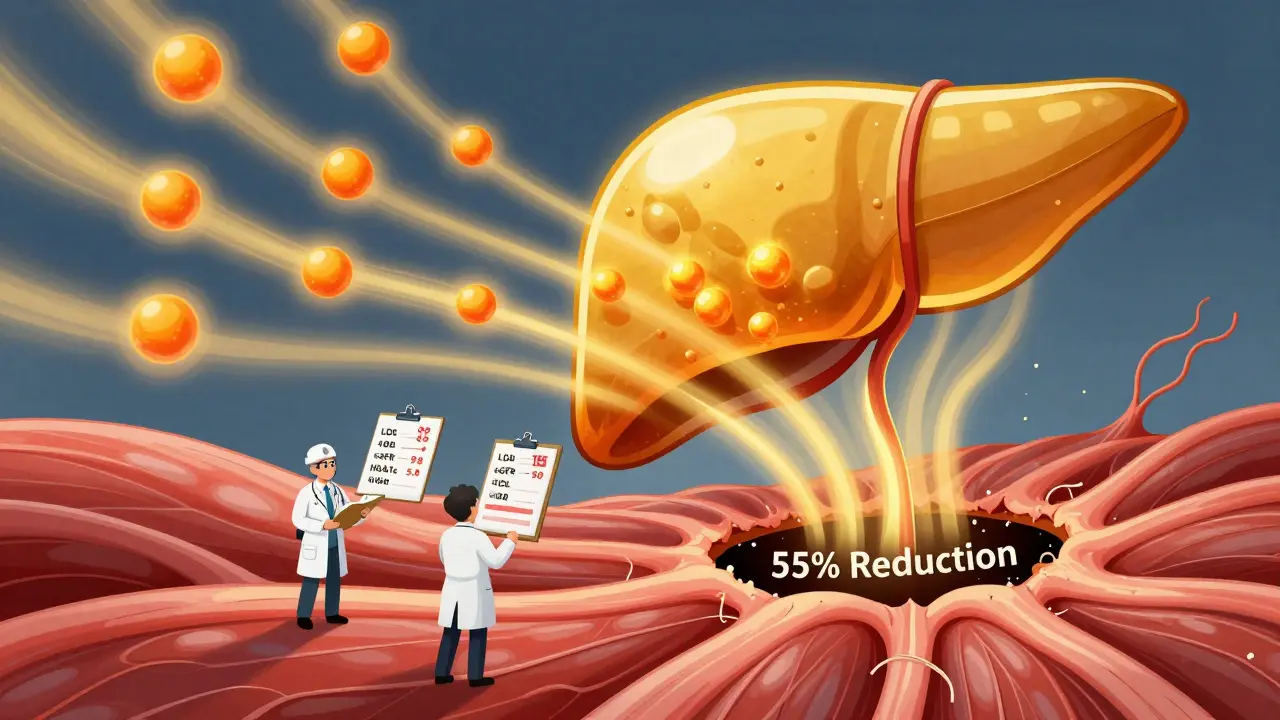LDL cholesterol: what the number means and what to do
LDL cholesterol (low-density lipoprotein) is the type of cholesterol most linked to clogged arteries and heart risk. High LDL means more fatty buildup in blood vessel walls. That raises your chance of heart attack and stroke. Knowing your LDL number gives a clear target for action — not just worry.
How to lower LDL: simple, practical steps
Start with the basics everyone can use. Cut saturated fats (think fatty cuts of meat, butter, full-fat dairy) and avoid trans fats (many processed snacks and fried foods). Swap in healthy oils like olive or canola, and choose lean proteins, fish, or plant proteins instead of fatty red meat.
Boost foods that lower LDL: eat more soluble fiber (oats, beans, apples, psyllium), use plant sterols or stanols (fortified margarine or spreads), and add oily fish twice a week. Losing even 5–10% of body weight helps, and regular aerobic exercise (30 minutes most days) improves cholesterol and heart health.
Quit smoking and limit alcohol. Smoking damages arteries and lowers HDL, which makes LDL more harmful. Cutting back on alcohol can reduce triglycerides and help overall balance.
When lifestyle changes aren’t enough, medicines work well. Statins are first-line: they lower LDL significantly and reduce heart attacks in large trials. If statins don’t reach your target or cause side effects, doctors may add ezetimibe, bile acid sequestrants, or newer PCSK9 inhibitors. Each drug has pros and cons—talk with your clinician about which fits you.
Testing, targets, and when to see a doctor
Cholesterol is usually checked with a blood test. Many labs use a calculated LDL; some measure it directly if numbers are high or triglycerides are high. Targets depend on your risk: people with known heart disease or very high risk often aim for LDL under 70 mg/dL. For lower-risk adults, targets are usually under 100 mg/dL or under 130 mg/dL depending on guidelines and your doctor’s advice.
See a doctor if your LDL stays high despite diet and exercise, if you have a family history of early heart disease, or if you have diabetes, high blood pressure, or chronic kidney disease. Mention any medications you take—some drugs, like steroids or certain antipsychotics, can raise cholesterol.
Small, steady changes add up. Track your progress with repeat tests, ask about side effects if you start medicine, and focus on habits you can keep long term. Lowering LDL reduces real risk of heart problems — and that’s worth the effort.


